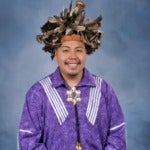Wealth, Financial Health, and the State of the Native Asset Building Field
American Indian and Alaska Native peoples have the lowest rates by demographic group of saving for college, retirement, and for an emergency, and over half of American Indian and Alaska Native households are un- or underbanked. Native Hawaiian families face similar challenges. Government and private sector policies have stripped Native communities of land, assets, and opportunity – and denied many access to capital – these barriers persist today, perpetuating inequitable outcomes.
On April 27, the Aspen Institute Financial Security Program, the Oklahoma Native Assets Coalition, Inc (ONAC), and the Aspen Institute Center for Native American Youth will partner to host Native leaders in the asset-building field and beyond to discuss how we can all better support tribal governments and Native-led nonprofits in their work building financial security in communities across the country.
Attendees will hear:
- How can the asset- and wealth-building fields learn from Native understandings of “assets” as described by Native asset building practitioners?
- What innovations are occurring in the Native asset building field, with culturally relevant financial coaching and other wraparound asset building services, and how can these programs be scaled?
- What are the priorities for Native asset-building leaders across the country in addressing harmful policies, challenging funding realities, and racial equity with regards to Native people?
Speakers

Sarah EchoHawk, CEO, American Indian Science and Engineering Society (AISES)
Sarah EchoHawk, a citizen of the Pawnee Nation of Oklahoma, has been working on behalf of Native people for over 20 years. She has been the Chief Executive Officer (CEO) of the American Indian Science and Engineering Society (AISES) since 2013. Prior to joining in AISES, Ms. EchoHawk was the Executive Vice President of First Nations Development Institute, a national nonprofit organization with a focus on economic development for American Indians. Ms. EchoHawk also served as the interim CEO for the organization’s subsidiary, First Nations Oweesta Corporation, during its management transition in 2010. Before joining First Nations Development Institute, she spent several years working for the American Indian College Fund raising support for tribal colleges and universities. During her tenure there, she served in many areas including operations, program management, communications, foundation relations, and individual giving. Ms. EchoHawk was an adjunct professor of Native American Studies at Metro State University of Denver for nine years where in addition to teaching introductory Native American studies courses, she also taught Native American Politics and co-taught Native Americans and Law with her father, John Echohawk, who co-founded the Native American Rights Fund (NARF) in 1970.
Ms. EchoHawk serves on multiple boards. She is currently the Vice Chair for Native Americans in Philanthropy, and as the Chair for the Native Ways Federation. She is an Emeritus board member and former Chair of Red Feather Development Group. She is also a member of the ad hoc committee at the National Academies of Sciences, Engineering, and Medicine for a project addressing the underrepresentation of women of color in tech. Additionally, Ms. EchoHawk is a member of the advisory board for the American Indian Policy Institute at the University of Arizona, Collaborative Advisory Board for Women of Color in Computing Research, Champions Board for the National Girls Collaborative, and is a former board member for the Oregon Native American Business and Entrepreneurial Network (ONABEN). She is the PI/Co-PI on multiple National Science Foundation grant projects and previously served as an Ambassador for the U.S. Department of Energy’s Minorities in Energy Initiative.
Ms. EchoHawk has a Master of Nonprofit Management (MNM) degree from Regis University and an undergraduate degree in Political Science and Native American Studies from Metro State University of Denver. She attended law school at the University of Colorado and completed additional graduate coursework in applied communications at the University of Denver.

Karen Edwards, Manager, Native Bank On ONAC, Oklahoma Native Assets Coalition, Inc.
Karen Edwards (Choctaw) is Manager of “Native Bank On ONAC,” a national initiative of the Oklahoma Native Assets Coalition, Inc. (ONAC). The initiative encourages tribal citizens from across the country, who may be unbanked or are banked, but mainly use alternative financial services, to open low-cost and safe Bank On certified accounts; and encourages financial institutions serving Native communities to create accessible, low-cost, and safe transactional accounts with features that meet the National Account Standards of the National Bank On program. Ms. Edwards previously worked at Washington University in St. Louis, from 1984 to 2006, where, in 1994, she helped established the Center for Social Development (CSD) serving as Administrative Director and State Assets Policy Project Director from 1994 to 2006. While with CSD (in 2001), Ms. Edwards initiated the establishment of ONAC.
 Christy Finsel, Executive Director, Oklahoma Native Assets Coalition, Inc.
Christy Finsel, Executive Director, Oklahoma Native Assets Coalition, Inc.
Christy Finsel is tribal citizen of the Osage Nation. Since 2011, she has directed the Oklahoma Native Assets Coalition, Inc. (ONAC), a Native-led nonprofit. Started in 2001, ONAC is an intermediary grant funder, as well as a direct service provider of seed funded Children’s Savings Accounts and emergency savings accounts, emergency cash assistance, financial coaching, down payment assistance, and incentivized Bank On accounts. ONAC also coordinates both the national Native Bank On ONAC initiative and the Native EITC/VITA Network; provides training and technical assistance; and conducts national Native asset building research. Ms. Finsel has been conducting Native asset building research and administering various asset building programs since 2003. She holds a MA in Theology from St. Louis University and a MASW from Washington University in St. Louis.
 Nikki Pitre, Executive Director, Aspen Institute Center for Native American Youth
Nikki Pitre, Executive Director, Aspen Institute Center for Native American Youth
Nikki’s Indian name is khwhele’ which means Meadow Lark. She is a member of the Coeur d’Alene Tribe and is of the Red Bird Clan. She is also Kalispel, Yakama, Nisqually, Cowlitz, and Squaxin Island. She is a direct descendant of Chief Spokane, Chief Ignace, Chief Kamayakin and Chief Leschi. Nikki takes pride standing on the shoulders of her ancestors, honoring the foundation they have laid and being as a vessel for her grandmothers to uplift the next generation. With a true passion to support Native youth and youth-led programming, Nikki serves as the Executive Director at the Center for Native American Youth at the Aspen Institute.
As Executive Director, Nikki works closely with the Board of Advisors and Youth Advisory Board, manages staff and sets the vision, strategy and priorities for the Center. Nikki oversees finances, manages development of communications, advocacy, programs and is the lead in resource development, partnership development and collaborative strategies.
Before her appointment as Executive Director, Nikki was Acting Director, Associate Director and Program Manager at CNAY. Prior to CNAY, Nikki served in several capacities at the American Indian Higher Education Consortium, including Student Success Program Director, Federal/ Tribal & Special Initiatives Associate, Advocacy Associate and Student Outreach Coordinator.
Nikki sits on the Partnership With Native Americans Board of Directors and serves on the Miss Indian World Committee for the Gathering of Nations Pow-wow. Nikki has worked on behalf of her people her whole life. Her biggest inspiration comes from her daughter, Aplnmarimn’tsu’tn (Carries the Medicine). Nikki maintains her culture through language, ceremony, powwows and honoring her teachings passed on to her. Nikki enjoys sewing regalia for her daughter, listening to podcasts, spending time in the outdoors, running, doing yoga and baking.
 Joanna Smith-Ramani, Managing Director, Aspen Institute Financial Security Program
Joanna Smith-Ramani, Managing Director, Aspen Institute Financial Security Program
Joanna Smith-Ramani is Managing Director of the Aspen Institute Financial Security Program, a leading national voice on Americans’ financial health. She is responsible for conceptualizing, planning, and overseeing the program’s research, convenings, and programs, aimed at furthering FSP’s mission to illuminate and solve the most critical financial challenges facing American households and to make financial security for all a top national priority.
Joanna has more than 15 years of experience across community, personal finance, and asset development. She joined Aspen FSP as the Director of its Expanding Prosperity Impact Collaborative (EPIC), where she built the program from the ground up and conceptualized and launched EPIC’s first two issues — income volatility and household debt — which FSP studies from causes to broader impact to market and policy solutions. Prior to joining FSP, Joanna served as Senior Innovation Director at Commonwealth, leading the unit that designs, tests, and evaluates promising financial service innovations. While at Commonwealth, Joanna developed innovations to improve savings and financial capability, including prize-linked savings, tax time savings, gamification, emergency savings, and youth savings. Additionally, Joanna led several federal grants, developed and sustained national coalitions, and built a network of industry partners.
Joanna has led national and state legislative campaigns resulting in the passage of a federal law and more than 10 state laws expanding savings innovation across the nation. She is a trusted expert on financial security and inclusion, having been quoted in numerous national and local media outlets such as the New York Times, National Public Radio, and Fox Cable News. Joanna holds a Master of Public Policy degree from the Harvard Kennedy School and a B.A. in Urban Studies from Barnard College, Columbia University. She serves on the Board of the CASH Campaign of Maryland, A Wider Circle, and the Lilabean Foundation, and was selected to the 2017-2018 class of Leadership Montgomery.
 Lakota Vogel, Executive Director, Four Bands Community Fund
Lakota Vogel, Executive Director, Four Bands Community Fund
Lakota Vogel is the Executive Director at Four Bands. In this role, Lakota provides leadership for Four Bands, establishes new and fosters existing partnerships, and leads and manages efforts to reach organizational goals. Prior to becoming the Executive Director, Lakota served as the Assistant Director at Four Bands for five years. Lakota is an enrolled member of the Cheyenne River Sioux Tribe. She graduated from the University of Notre Dame with a Bachelor of Arts Degree in Sociology. Upon graduation, she joined Teach for America and taught on the Rosebud Sioux Reservation at Todd County High School. Lakota obtained her Masters in Social Work Degree from Washington University in St. Louis with the Kathryn M. Buder Center for American Indian Studies. Lakota individualized her course of study to concentrate in economic security and social development through the life course of American Indians.
In addition to her educational experience, Lakota has completed a summer fellowship with National Congress of American Indians. She has served on the Native American Alumni Board of Directors at the University of Notre Dame. Lakota initiated program evaluations at the Consortium for Graduate Study in Management and Washington Internships for Native Students to develop program components for American Indian participants. Lakota is excited to be back home on Cheyenne River and to be able to spend time with all of her family, especially her nieces and nephews.
 Rory Wheeler, Youth Advisory Board Member, Center for Native American Youth
Rory Wheeler, Youth Advisory Board Member, Center for Native American Youth
Rory Wheeler is a citizen of the Seneca Nation, Turtle Clan, and serves as a member of the Youth Advisory Board for the Center for Native American Youth at the Aspen Institute. He previously served as a Government Affairs Fellow for the Seneca Nation and an Investigator/Auditor for the Seneca Gaming Authority. He was recently named to the Native American Finance Officers Association (NAFOA) Leadership Summit Class. Rory received his B.A. in Political Science from Niagara University and will be attending the Michigan State University College of Law.
Related Readings
- The Future of Building Wealth: Brief Essays on the Best Ideas to Build Wealth – For Everyone, edited by Ray Boshara, Federal Reserve Bank of St. Louis, and Ida Rademacher, Financial Security Program, Aspen Institute
- Wealth Building for Native Families and Communities, by Christy Finsel (Osage) and Karen Edwards (Choctaw)
- Financial Capability and Asset Building With a Racial- and Gender-Equity Lens: Advances From the Field, by Christy Finsel, Mae Watson Grote, Margaret Libby, Cathie Mahon, Margaret S. Sherraden